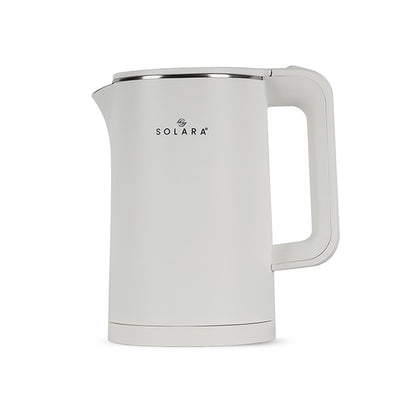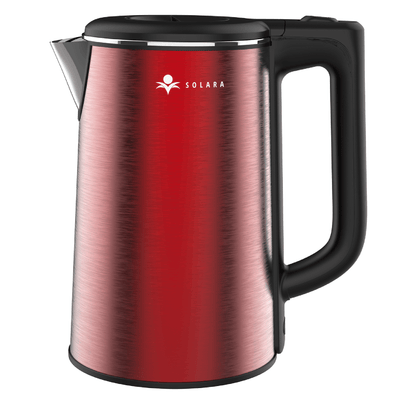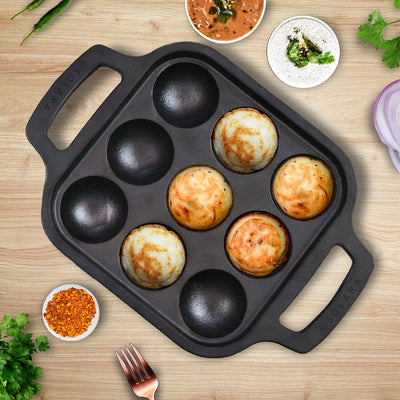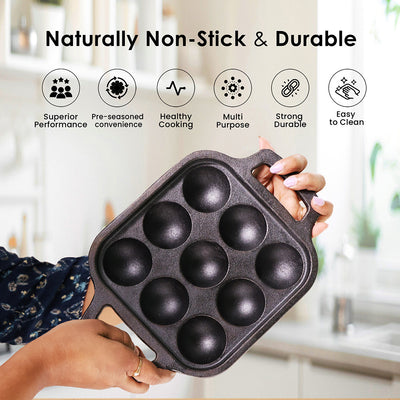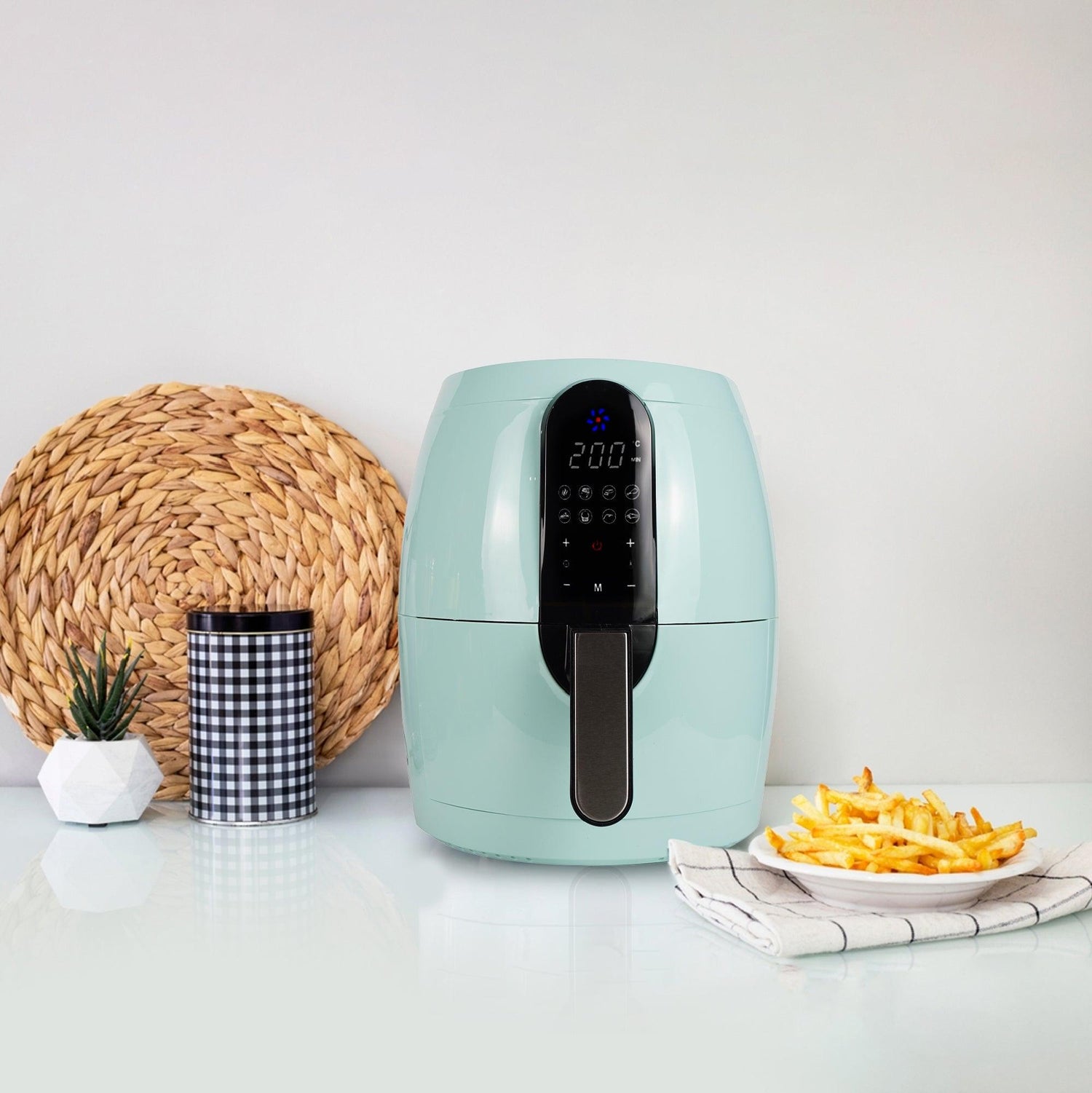Air fryers have become a staple in modern kitchens, praised for their ability to cook crispy, delicious meals with minimal oil. However, concerns about potential cancer risks—linked to acrylamide formation, non-stick coatings, and misinformation—have sparked debate. Are air fryers safe, or do they pose health risks? This article explores the science, debunks myths, and offers practical tips for safe air fryer use, with insights into why models like the Solara Air Fryer are a healthy choice.
Why Air Fryers Might Be Considered a Cancer Risk
Formation of Acrylamide
Air fryers operate at high temperatures (180–200°C), which can trigger the formation of acrylamide in starchy foods like potatoes or bread. Acrylamide, classified as a probable carcinogen by the International Agency for Research on Cancer (IARC), forms when sugars and amino acids react under high heat.
The European Food Safety Authority (EFSA) notes that prolonged exposure to acrylamide may increase cancer risk, though direct causation in humans remains unproven. Frequent consumption of overcooked, acrylamide-rich foods could, in theory, elevate risk levels over time.
Concern: Overcooking starchy foods in air fryers may increase acrylamide exposure.
Non-Stick Coating Concerns
Most air fryers use non-stick coatings, typically polytetrafluoroethylene (PTFE). When overheated beyond 260°C or scratched, these coatings may release trace fumes or chemicals. Some studies suggest potential health risks from low-quality or damaged coatings, particularly in poorly manufactured models.
Concern: Improper use or substandard air fryers could lead to minimal exposure to harmful compounds.
Misinformation and Myths
Online myths often exaggerate air fryer risks, confusing them with microwaves or overstating the dangers of high-heat cooking. These misconceptions can create unwarranted fear, causing consumers to avoid air fryers despite their benefits.
Concern: Misinformation may deter users from adopting healthier cooking appliances.
Why Air Fryers Are Generally Safe
Lower Acrylamide Levels
Research published in the Journal of Food Science (2020) shows that air frying produces significantly less acrylamide than deep frying. When cooking is monitored to avoid over-browning, acrylamide levels are comparable to those from baking or grilling. Mindful cooking practices, such as not overcooking fries, further reduce risks.
Safety: Air fryers are a safer alternative to traditional frying methods when used correctly.
Safe Non-Stick Coatings
Reputable brands, like the SOLARA Air Fryer, use PFOA-free, food-grade non-stick coatings that are safe at standard cooking temperatures. These coatings comply with FDA and EU safety regulations, ensuring no harmful chemical exposure when the appliance is used as directed.
Safety: High-quality air fryers from trusted brands prioritize consumer health and durability.
No Radiation Involved
Unlike microwaves, air fryers rely on convection heat—circulating hot air—to cook food. They emit no ionizing radiation, which could damage DNA or increase cancer risk. In essence, air fryers function like mini convection ovens, with no proven carcinogenic mechanisms.
Safety: Air fryers pose no radiation-related health risks.
Health Benefits of Air Frying
Air frying requires little to no oil, reducing consumption of trans fats, which are linked to inflammation and higher cancer risk. According to a 2019 study in Food Chemistry, air frying retains more nutrients than deep frying, supporting healthier meals. Models like the SOLARA Digital Air Fryer, with pre-set healthy cooking modes, make it easy to prepare nutrient-rich dishes.
Safety: Air fryers promote a low-oil, wellness-focused diet.
How to Use Air Fryers Safely
To minimize potential risks and maximize health benefits, follow these practical tips:
- Avoid Overcooking: Cook starchy foods like potatoes until golden, not dark brown, to reduce acrylamide formation.
- Soak Potatoes: Soak sliced potatoes in water for 15–30 minutes before air frying to lower starch content and acrylamide risk.
- Choose Quality Appliances: Opt for PFOA-free models from trusted brands like Solara to ensure safe non-stick coatings.
- Don’t Overheat: Keep cooking temperatures below 200°C to prevent damage to non-stick surfaces.
- Clean Properly: Use soft sponges to avoid scratching the non-stick coating, preserving its safety.
Comparison: Acrylamide Levels in Cooking Methods
|
Cooking Method |
Acrylamide Levels |
Notes |
|---|---|---|
|
Air Frying |
Low |
Comparable to baking when not overcooked |
|
Deep Frying |
High |
More oil, higher acrylamide |
|
Baking |
Low to Moderate |
Depends on temperature and time |
|
Grilling |
Moderate |
Varies with charring |
FAQs About Air Fryers and Health
Can air fryer non-stick coatings cause cancer?
No, modern air fryers with PFOA-free coatings, like the SOLARA Air Fryer, are safe when used at recommended temperatures. Avoid overheating or scratching the coating.
Is air frying healthier than deep frying?
Yes, air frying uses less oil, reducing trans fat intake and preserving nutrients, as supported by a 2019 Food Chemistry study.
How can I reduce acrylamide in air fryer cooking?
Soak starchy foods, avoid over-browning, and cook at moderate temperatures (below 200°C).
Conclusion
Air fryers do not pose a significant cancer risk when used properly. Concerns about acrylamide and non-stick coatings are manageable through mindful cooking and choosing high-quality appliances like the SOLARA Air Fryer. With lower acrylamide levels, no radiation, and health-focused benefits, air fryers are a safe and sustainable choice for modern kitchens.
Ready to cook healthier? Explore the SOLARA Digital Air Fryer’s PFOA-free, health-focused features today!
Click Here : SOLARA Air Fryer











